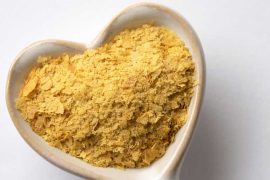Incorporating mint leaves into your daily diet can bring about a range of potential benefits, according to insights from G Sushma, a clinical dietitian at CARE Hospitals in Banjara Hills, Hyderabad. Mint is known for its refreshing aroma and cool flavor, making it a widely used ingredient in global kitchens. The herb is recognized for its positive effects on digestion, potentially alleviating issues like indigestion and bloating. Additionally, mint’s menthol content may provide relief from respiratory problems and contribute to mood enhancement, thanks to its calming properties.
However, it’s crucial to be mindful of potential drawbacks, such as the possibility of heartburn in some individuals and rare cases of mint allergies. Mint’s interaction with certain medications and its impact on milk supply in breastfeeding mothers should also be considered, making it advisable to seek personalized advice from healthcare professionals before incorporating mint into one’s daily routine.
Mint into your daily routine:
Incorporating mint into your daily routine can be a refreshing and flavorful addition to various dishes or beverages, but it’s essential to prioritize safety and moderation. While most people tolerate moderate amounts of mint well—whether used in salads, tea, or as a culinary accent—excessive intake may lead to side effects in some individuals. There’s no universal guideline for the ideal daily amount of mint, so it’s crucial to practice moderation to avoid potential adverse reactions. Balancing enjoyment with caution ensures that the benefits of mint are harnessed without risking any negative effects. Remember, when it comes to mint consumption, a “one size fits all” approach is not applicable, and individual tolerance levels should be considered for a safe and enjoyable experience.
The Upsides of Daily Mint:
- Digestive Aid: Mint is known for its ability to aid digestion and alleviate tummy troubles by relaxing digestive tract muscles.
- Fresh Breath: The natural properties of mint contribute to fresher breath, whether consumed raw or used in chewing gum.
- Antioxidant Boost: Mint is rich in antioxidants, which can combat free radicals in the body.
- Mental Stimulant: The invigorating aroma of mint is believed to stimulate the brain, potentially enhancing alertness and cognitive function.
The Downsides of Daily Mint:
- Heartburn Risk: Mint may relax the lower esophageal sphincter, possibly increasing symptoms of acid reflux in some individuals.
- Allergic Reactions: Mint allergies, though less common, can cause skin reactions or other allergic symptoms in certain individuals.
- Impact on GERD: Individuals with Gastroesophageal Reflux Disease (GERD) may experience worsened symptoms with excessive mint intake due to the sphincter relaxation effect.
Who Should Avoid Mint:
- Infants: Mint might be too strong for infants, so caution is advised when considering its use in babies and young children.
- GERD Sufferers: People with GERD should be mindful of their mint intake to avoid aggravating symptoms.
- Allergy Concerns: Those with known allergies to mint or related plants should steer clear.
Reminder:
Individual reactions to mint can vary, so it’s crucial to be mindful of personal health needs. If there are specific health concerns, consulting a doctor or registered dietitian for personalized advice is recommended.
Conclusion:
Enjoying mint responsibly allows individuals to reap potential benefits while being aware of potential drawbacks, ensuring a balanced and mindful approach to its incorporation into one’s diet.
Disclaimer:
The information contained in this article is for educational and informational purposes only and is not intended as a health advice. We would ask you to consult a qualified professional or medical expert to gain additional knowledge before you choose to consume any product or perform any exercise.







